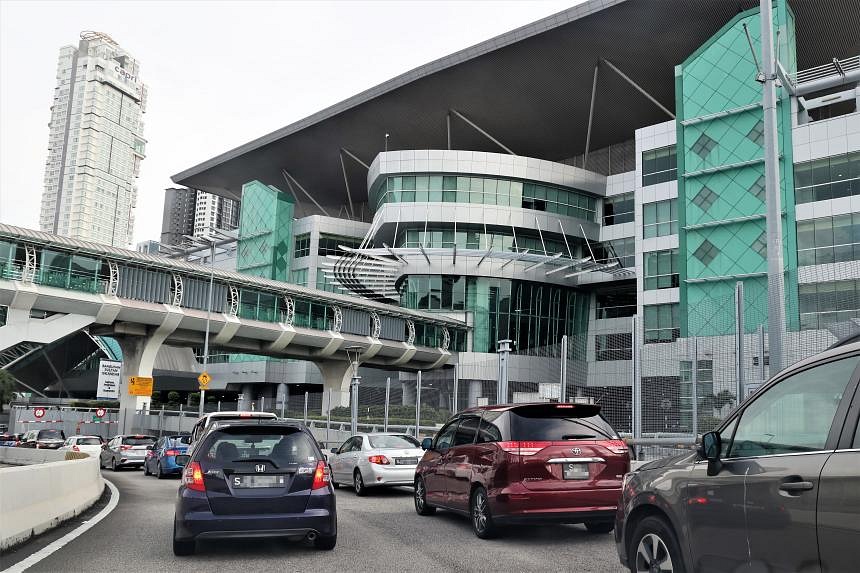Malaysia to spend $48.8m to address traffic congestion at both Johor checkpoints
The projects include adding 44 M-Bike lanes at the Bangunan Sultan Iskandar and Kompleks Sultan Abu Bakar CIQs, costing about RM61.7 million. PHOTO: LIANHE ZAOBAO FILE
JOHOR BAHRU - Projects worth more than RM168.7 million (S$48.8 million) will be carried out at both of Johor’s Customs, Immigration and Quarantine (CIQ) complexes to address traffic congestion issues, said Malaysian Deputy Prime Minister Fadillah Yusof on Wednesday.
He said the projects include adding 44 M-Bike lanes at the Bangunan Sultan Iskandar (BSI) and Kompleks Sultan Abu Bakar (KSAB) CIQs, which will cost about RM61.7 million.
“Statistics showed that 71 million people used both CIQs last year since border travel resumed on April 1, 2022,” Datuk Seri Fadillah said. “For this year, about 98 million people have used both CIQs as at September, and we expect the figures to hit 136 million by the end of 2023.”
He was speaking after chairing a meeting on Wednesday with a special committee at BSI to address traffic congestion issues at both checkpoints.
Mr Fadillah attended the meeting virtually, while Home Affairs Minister Saifuddin Nasution Ismail, Works Minister Alexander Nanta Linggi and Johor Menteri Besar Onn Hafiz Ghazi were present.
The Deputy Prime Minister said 21 initiatives had been planned to tackle traffic congestion, and 15 of them were completed while the rest were ongoing as at Tuesday.
“Looking at current and future needs, the committee has decided to add another four initiatives to set up more M-Bike lanes, construct a covered walkway on the Causeway and provide incentives for immigration officials on duty.
“We also agreed to merge the immigration clearance halls as well as upgrade and build new facilities at KSAB, with a cost of RM106.9 million,” he added.
Before the meeting, the ministers, Datuk Onn Hafiz and the relevant government agencies visited the immigration clearance areas for pedestrians and vehicles to inspect conditions.
The M-Bike system was introduced in 2016 to help reduce congestion at entry points for Malaysian motorcyclists between Malaysia and Singapore. It is similar to the auto-gates placed at all entry and exit points in Malaysia.
The system uses a radio frequency identification device sticker attached to the holder’s passport, requiring them to place their thumb on the reader before the gantry gate opens.
Mr Onn Hafiz said the BSI CIQ has started a dry run on Wednesday to test contra-flow lanes to ease traffic congestion, with early signs showing major improvements to traffic flow. “Aside from the Causeway, we are looking at activating contra-flow lanes at the Kompleks Sultan Abu Bakar CIQ where the Second Link is,” he said.
“This will involve not just bus commuters but also other vehicles as we want to prioritise all users.”
Contra-flow lane proposals, allowing traffic to use lanes meant for the opposite direction, may be activated for vehicles and pedestrians during periods such as public holidays and school holidays, when traffic congestion could stretch for hours.
This article was originally published on The Straits Times. Its inclusion on this website is solely for education purposes.



No comments
Share your thoughts! Tell us your name and class for a gift (: